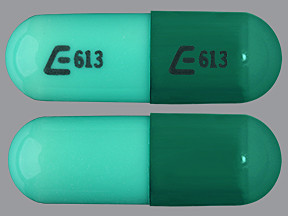HYDROXYZINE PAMOATE - ORAL
PHONETIC PRONUNCIATION: (hye-DROX-i-zeen PAM-oh-ate)
COMMON BRAND NAME(S): Vistaril
GENERIC NAME(S): hydroxyzine pamoate
Uses
USES: Hydroxyzine is used to treat itching caused by allergies. It is an antihistamine and works by blocking a certain natural substance (histamine) that your body makes during an allergic reaction. Hydroxyzine may also be used short-term to treat anxiety or to help you feel sleepy/relaxed before and after surgery.
How to use HYDROXYZINE PAMOATE - ORAL
HOW TO USE: Take this medication by mouth with or without food as directed by your doctor, usually three or four times daily. The dosage is based on your age, medical condition, and response to treatment. In children, the dosage may also be based on weight. Do not increase your dose or take this medication more often than directed. Tell your doctor if your condition does not improve or if it worsens.
Side Effects
Precautions
Interactions
Overdose
Images

- color
- light green
- shape
- oblong
- imprint
- E613, E613

- color
- light green
- shape
- oblong
- imprint
- E613, E613
Reviews
Faq for HYDROXYZINE PAMOATE - ORAL
Hydroxyzine pamoate is an antihistamine used to treat symptoms such as itching, runny nose, sneezing, and hives caused by allergies.
Follow the instructions provided by your doctor or pharmacist. Generally, it is taken orally with or without food as directed. The dosage will depend on your condition and response to treatment.
Common side effects may include drowsiness, dry mouth, dizziness, headache, blurred vision, or constipation. Inform your doctor if any of these persist or worsen.
Hydroxyzine pamoate can be prescribed off-label for anxiety or insomnia, as it has sedative properties. However, it is important to consult your doctor for proper guidance and dosage.
Hydroxyzine pamoate is not considered addictive. However, sudden discontinuation after long-term use may result in withdrawal symptoms. It is advisable to gradually reduce the dosage under medical supervision.
Hydroxyzine pamoate is generally considered safe to use during pregnancy. However, it is recommended to consult your doctor before taking any medication during pregnancy.
Hydroxyzine pamoate may interact with certain medications, such as sedatives, opioids, or alcohol, leading to increased drowsiness or respiratory depression. Inform your doctor about all the medications you are taking before starting hydroxyzine pamoate.
Take the missed dose as soon as you remember. However, if it is almost time for the next dose, skip the missed dose and continue with your regular dosing schedule. Do not double the dose to catch up.
Hydroxyzine pamoate can be prescribed to children, but the dosage will be determined by their weight and age. Consult your pediatrician for appropriate guidance.
Disclaimer
IMPORTANT: HOW TO USE THIS INFORMATION: This is a summary and does NOT have all possible information about this product. This information does not assure that this product is safe, effective, or appropriate for you. This information is not individual medical advice and does not substitute for the advice of your health care professional. Always ask your health care professional for complete information about this product and your specific health needs.
No Reviews Yet